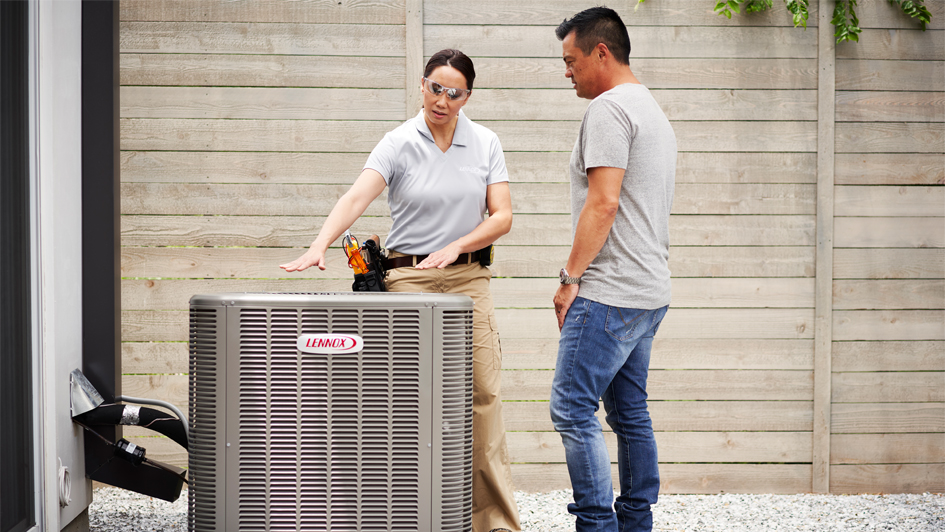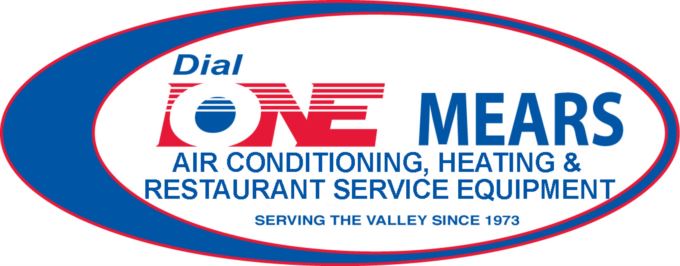
Choosing the correct HVAC system size for your home is essential. It impacts your home enjoyment and your energy bills. In this HVAC sizing guide, the professionals at Dial One Mears Air Conditioning & Heating Inc will explain how to determine the correct size of heating and cooling system for your home, what factors they take into account and why picking the most suitable size HVAC is so important to your convenience.
What Impact Does HVAC System Size Make on Home Comfort and Efficiency
Proper HVAC size differs from home to home. Your HVAC system needs enough heating and cooling capacity to make your entire home cozy. It shouldn't struggle to keep up in extremely scorching or cold weather. However, an HVAC system that's too big is inefficient, increases your energy expenses and can create issues that make your home less agreeable.
Key Factors Pros Consider for HVAC Sizing in Phoenix, AZ
To select the appropriate HVAC system size for a home, the HVAC installation experts at Dial One Mears Air Conditioning & Heating Inc carry out a Manual J load calculation to determine how many British Thermal Units (BTUs) are required to heat and cool and the home. A Manual J calculation evaluates several factors, such as:
- Size of the home: The total area of the home is arguably the most important factor in selecting the size of your HVAC system. How much space will your new HVAC system be required to heat and cool?
- Home insulation: A well- insulated home maintains the indoor temperature more effectively, which can influence how much heating and cooling power you need.
- Climate: The local climate in Phoenix, AZ, plays a significant role in finding the right size HVAC. Homes in warmer climates may require a system with a greater cooling capacity, while cooler regions may need less.
- Window placement and size: Windows can be a considerable source of energy loss. The number, dimensions, type of glass used, and whether they’re single paned or double pane can considerably influence heating and cooling requirements.
- Amount of sun: A home that gets a substantial sunlight will inherently be warmer than one that doesn't, which impacts central air sizing. Positioning in relation to prevailing winds and number of nearby shade trees also impact the proper HVAC size.
Most Common DIY HVAC Size Mistakes
A common mistake homeowners make when choosing the size of home HVAC system is to rely solely on square footage. Although the square footage of your home has a significant impact on what size HVAC you need, other elements also influence how much heating and cooling capacity is necessary to keep your home cozy.
Another typical mistake is not employing a professional. It's crucial to have an experienced HVAC technician carry out a Manual J calculation, which takes all the essential elements into consideration to determine the correct HVAC size.
What Difference Does HVAC System Size Make?
An inadequately sized system can result in comfort problems and cost you money. Here's a closer look at the pitfalls of a incorrectly sized HVAC:
Undersized HVAC system problems:
- Reduced lifespan and breakdowns: HVAC systems that don't have enough power often run constantly to attempt to regulate the temperature of a home, leading to excessive wear and tear. This can cause breakdowns and even require premature HVAC replacement.
- An unpleasant home: Small HVAC systems are too weak to heat and cool your entire living space, which can result in hot, stuffy rooms or areas of your home that are far too cool.
- Increased energy expenses: An underpowered HVAC system that works constantly trying to keep up uses more energy, increasing your monthly power bills and costing you money. A properly sized and energy-efficient HVAC system uses less power and helps to lower your monthly bills.
Oversized HVAC system problems
- Unnecessary expenses: Larger HVAC systems are usually more costly, so purchasing more heating and cooling capacity than your home needs is an avoidable expense.
- Shorter system life and breakdowns: HVAC systems that are oversized often start and stop frequently, referred to as short cycling. This can cause wear and tear on your equipment, shortening its service life or requiring HVAC repair.
- Excessive indoor humidity: An HVAC system should control the moisture level in your home, but an oversized HVAC system often completes its cycle before it has time to accomplish that task. This can lead to indoor air quality issues, and encourage the growth of mildew or mold.
Get Professional HVAC Sizing and Replacement by Working with Dial One Mears Air Conditioning & Heating Inc
Now that you know some of the factors that impact what HVAC system size is right for you, it's time to select a new heating and cooling system. Dial One Mears Air Conditioning & Heating Inc is ready to help.
We’ll evaluate your home and give you a free, no-obligation estimate for HVAC installation. We’ll analyze your home to identify the ideal HVAC system size for you, so you can have a comfortable home every day of the year.
Call 602-584-2884 today to book your free estimate for HVAC installation in Phoenix, AZ.
